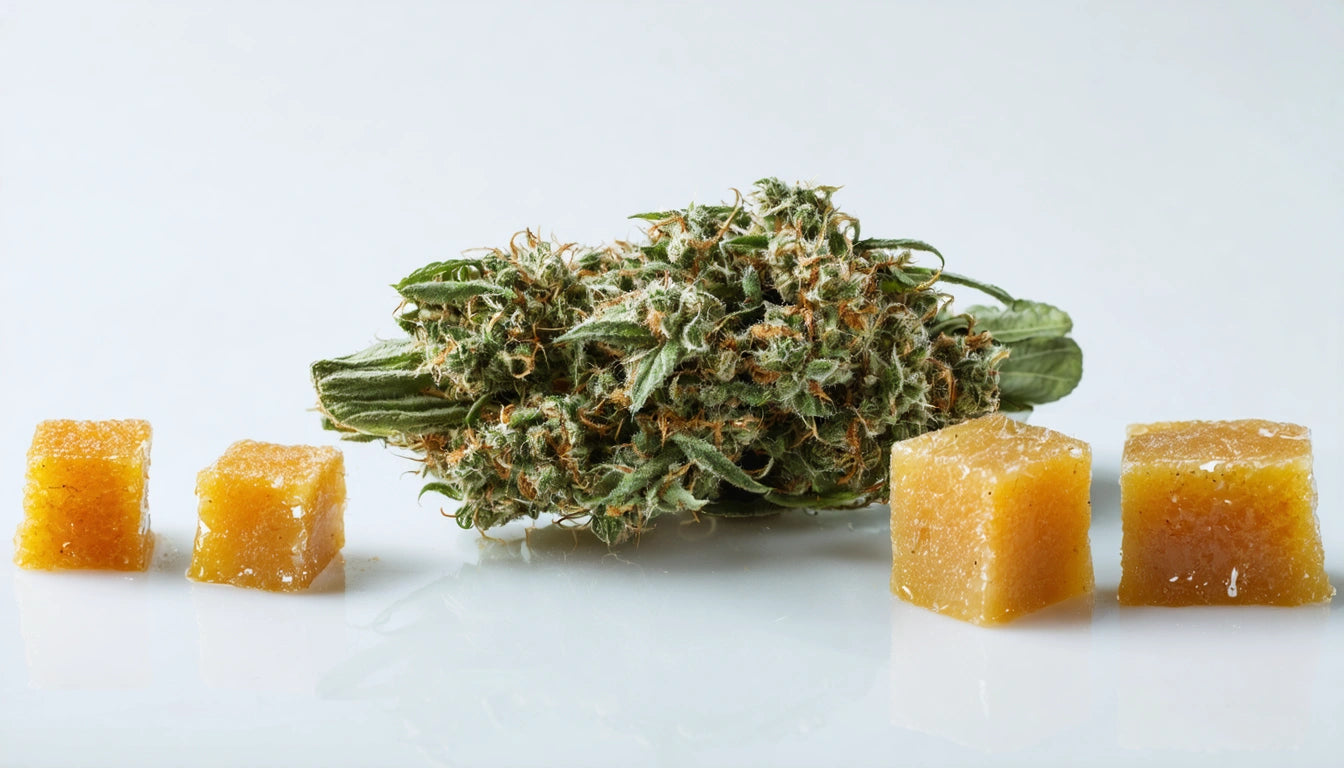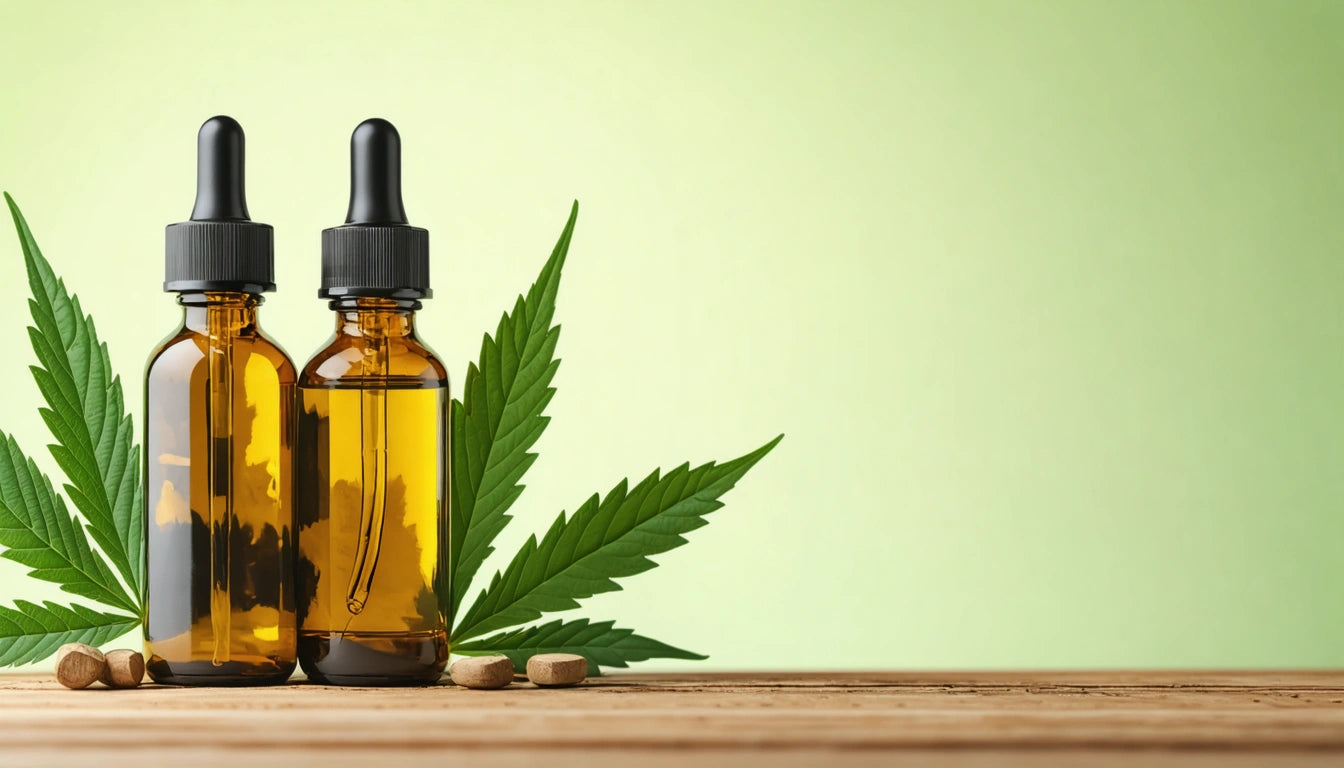Table of Contents
Can You Eat Cannabis Buds or Budder? Exploring the Effects and Possibilities
The question "can you eat bud" or "what happens if you eat bud" is surprisingly common among cannabis newcomers. While smoking remains the most familiar consumption method, curiosity about eating raw cannabis flower or concentrates like budder continues to grow. This comprehensive guide explores what happens when cannabis is consumed in its various forms without proper preparation.
Eating Raw Cannabis Buds: What Happens?
Technically, yes, you can eat raw cannabis buds, but the effects won't be what most people expect. Raw cannabis consumption produces minimal psychoactive effects because the cannabinoids exist primarily in their acidic forms.
When you eat raw cannabis flower:
- You won't experience the typical "high" associated with cannabis
- The plant material is difficult to digest and may cause stomach discomfort
- You'll consume cannabinoid acids like THCA and CBDA, which have different properties than their activated counterparts
- The taste is generally unpleasant, often described as bitter and grassy
Raw cannabis does contain nutrients, including vitamins, minerals, and antioxidants, which is why some people incorporate it into smoothies or juices for potential health benefits rather than psychoactive effects.
THCA vs. THC: Why Decarboxylation Matters
The key to understanding what happens if you eat buds straight up lies in a process called decarboxylation. Fresh, raw cannabis contains THCA (tetrahydrocannabinolic acid), not THC (tetrahydrocannabinol).
THCA is non-intoxicating, which is why eating raw flower doesn't produce a high. To convert THCA to the psychoactive THC, cannabis must be heated through a process called decarboxylation. This occurs automatically when cannabis is:
- Smoked
- Vaporized
- Baked (as in edibles)
- Otherwise heated to approximately 220-245 °F (104-118 °C)
Understanding the cannabis flowering and budding process helps explain why raw buds contain these acidic cannabinoids, which are produced naturally as the plant matures.
Consuming Cannabis Concentrates: Budder and Beyond
The question "can you eat live budder" refers to a cannabis concentrate known for its creamy, butter-like consistency. Like flower, the answer depends on whether the concentrate has been decarboxylated.
Live budder and other concentrates:
- Contain much higher concentrations of cannabinoids than flower
- May cause intense, potentially uncomfortable effects if consumed orally after decarboxylation
- Often have residual solvents if not properly purged during manufacturing
- Are not designed for direct consumption
For those interested in processing cannabis into concentrates, quality grinding equipment is essential for breaking down flower before extraction, ensuring consistent particle size and maximizing yield in concentrate production.
If you're wondering what happens if you eat cannabis wax or other concentrates, the effects can be unpredictable and potentially overwhelming due to their high potency, especially if they've been decarboxylated.
Safer Consumption Methods for Cannabis
Rather than eating raw buds or concentrates directly, consider these safer alternatives:
Properly Prepared Edibles
Commercial or homemade edibles use decarboxylated cannabis infused into fats (butter, oils) to create predictable, measured doses.
Tinctures and Oils
These liquid extracts provide precise dosing and faster onset than traditional edibles.
Traditional Inhalation
Various smoking methods provide immediate effects and easier dose control for experienced users.
For those specifically interested in the effects of ingestion, learning about whether you can get high from eating cannabis properly prepared in edible form provides important context on absorption differences.
Legal and Health Considerations for Cannabis Consumption
Before consuming cannabis in any form, consider these important factors:
- Edible cannabis products produce stronger, longer-lasting effects than inhaled methods
- The onset time for edibles ranges from 30 minutes to 2 hours, leading some users to mistakenly consume too much
- Different jurisdictions have varying regulations regarding cannabis products
- Raw cannabis may contain contaminants like mold (including bud rot), pesticides, or bacteria
Understanding edible cannabis risks is essential for safe consumption, especially for those new to cannabis or switching from smoking to ingestion.
For those growing their own cannabis, proper harvesting techniques ensure the highest quality buds whether for smoking or processing into edibles.
In summary, while you technically can eat cannabis buds or concentrates, doing so without proper preparation limits beneficial effects and may cause digestive discomfort. For those interested in edible cannabis, properly decarboxylated and dosed products provide a safer, more predictable experience.











Leave a comment
All comments are moderated before being published.
This site is protected by hCaptcha and the hCaptcha Privacy Policy and Terms of Service apply.